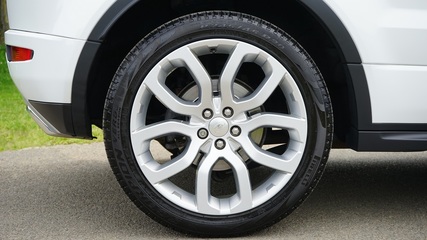
With winter quickly approaching, now is the time to consider getting winter tires for your vehicle if you haven't already. This is especially true it you live in the northern hemisphere and live in an area where winters are particularly harsh. If you get cold weather, snow, ice and wet conditions in the winter months a set of good quality winter tires will really make a difference and help to keep you and your passengers safe during the coldest season of the year. Here are some facts and advice regarding winter tires (also known as snow tires) and the importance of them:
1. Cold temperatures affect braking: Once the temperature drops below 7 degrees celsius, snow tires do a better job of gripping and braking than all season tires do due to the softer rubber compound that they are made of. While all seasons tend to start losing grip as the temperature approaches freezing, winter tires are designed with the cold weather in mind and can remain softer as the weather drops.
2. Always get four winter tires. Some people think about getting only two winter tires and placing them on the wheels that do the driving (i.e. on the front wheels in a front wheel drive vehicle) but this is not a good idea. Having a good quality and matching set of four snow tires on your vehicle makes the most sense so that all wheels have the same tread and tire design.
3. Be careful about buying used: While used snow tires might seem like a bargain, think about it for a second. If you buy used tires through a private sale, you have no recourse if they wear out quickly and then you're forced to buy another set. Plus you can't really be sure unless you closely inspect the tires to ensure that there is no premature wear, cracks or other problems or if the tires have been patched due to punctures. While a new set seems more expensive, if they last 5 winters or longer the cost gets depreciated over a longer period of time nullifying much of the savings of a used set that might only last 1 or 2 seasons.
4. Get the best brand that you can afford: While getting a separate set of tires from your all seasons does cost more, the difference between all seasons and snow tires can be significant. Studies show that a good set of four winter tires helps you stop much quicker than all seasons in snowy, icy conditions. A good set of winter tires is much better in winter than a great set of all seasons.
5. Consider buying winter tires on separate rims: While buying winter tires with no rims and simply swapping your all seasons every year off the rims and putting the winter tires on the same rims seems like a good idea, it costs more to switch them back every year and have them balanced again than simply having two sets of tires and rims. Plus swapping tires on and off rims can cause them to prematurely wear.
Learn more about automotive tires [http://www.discounttirecouponshq.com/] and what brands are available for your vehicle for both winter and all season tires. You can also learn about new trends in tire manufacturing and get a history of major tire manufacturers to figure out what makes the most sense for you.
Article Source: http://EzineArticles.com/expert/Danna_Miller/1063478
1. Cold temperatures affect braking: Once the temperature drops below 7 degrees celsius, snow tires do a better job of gripping and braking than all season tires do due to the softer rubber compound that they are made of. While all seasons tend to start losing grip as the temperature approaches freezing, winter tires are designed with the cold weather in mind and can remain softer as the weather drops.
2. Always get four winter tires. Some people think about getting only two winter tires and placing them on the wheels that do the driving (i.e. on the front wheels in a front wheel drive vehicle) but this is not a good idea. Having a good quality and matching set of four snow tires on your vehicle makes the most sense so that all wheels have the same tread and tire design.
3. Be careful about buying used: While used snow tires might seem like a bargain, think about it for a second. If you buy used tires through a private sale, you have no recourse if they wear out quickly and then you're forced to buy another set. Plus you can't really be sure unless you closely inspect the tires to ensure that there is no premature wear, cracks or other problems or if the tires have been patched due to punctures. While a new set seems more expensive, if they last 5 winters or longer the cost gets depreciated over a longer period of time nullifying much of the savings of a used set that might only last 1 or 2 seasons.
4. Get the best brand that you can afford: While getting a separate set of tires from your all seasons does cost more, the difference between all seasons and snow tires can be significant. Studies show that a good set of four winter tires helps you stop much quicker than all seasons in snowy, icy conditions. A good set of winter tires is much better in winter than a great set of all seasons.
5. Consider buying winter tires on separate rims: While buying winter tires with no rims and simply swapping your all seasons every year off the rims and putting the winter tires on the same rims seems like a good idea, it costs more to switch them back every year and have them balanced again than simply having two sets of tires and rims. Plus swapping tires on and off rims can cause them to prematurely wear.
Learn more about automotive tires [http://www.discounttirecouponshq.com/] and what brands are available for your vehicle for both winter and all season tires. You can also learn about new trends in tire manufacturing and get a history of major tire manufacturers to figure out what makes the most sense for you.
Article Source: http://EzineArticles.com/expert/Danna_Miller/1063478

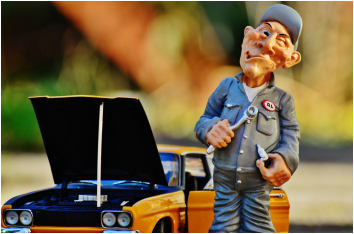
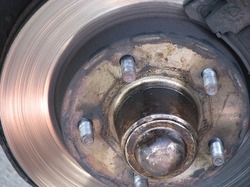
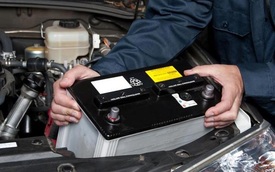

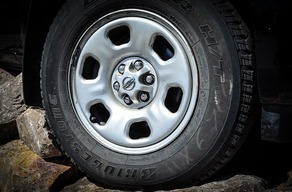
 RSS Feed
RSS Feed